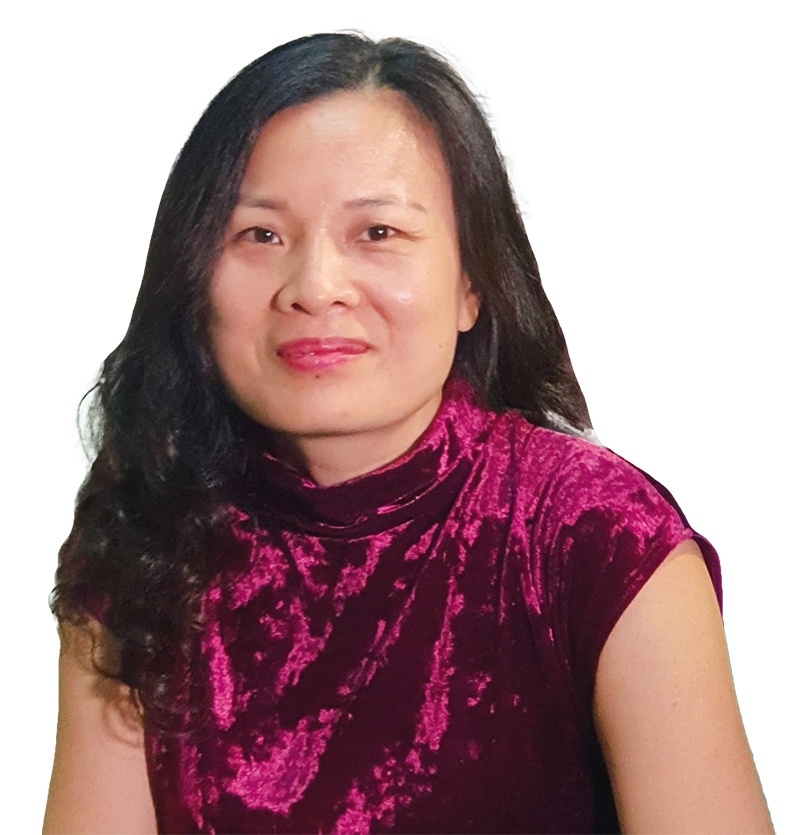Towards human economy - The critical shift necessary in economic development model
 |
| Vu Thi Quynh Hoa - National director, Oxfam in Vietnam |
Evidence shows that inclusive and unsustainable economic growth cannot end global poverty. An Oxfam report showed that in 2020, nearly half of humanity were still living below the poverty line with an income of just $5.50 a day. Meanwhile, the assets of about 2,000 billionaires in the world are larger than the assets of 4.6 billion people in the world combined.
These contexts have created and fuelled movements in thinking from material deprivation to a capacity and rights-based approach. The problem of global development in the early 21st century is not only poverty in low-income countries, but inequality and global problems that affect all countries, rich or poor.
These shifts have spurred Oxfam, with a nearly 80-year history of working globally to combat poverty and inequality, to introduce a new development model called the human economy that works towards harmonising economic prosperity, environmental sustainability and social justice.
The core of the human economy model is to put the interests of people and the environment above profit goals. This model forges a successful social and economic system, where people are at the centre of economic thinking; business and market activities benefit the many, not just the rich; and environmental tolerances are not compromised, while social foundations and economic prosperity are sustained.
In Vietnam, the last 30 years have seen significant economic progress and a strong record of poverty reduction. However, it is estimated that due to the impact of COVID-19, Vietnam will be among the 20 countries with the highest ratio of poverty headcount. Vietnam is also one of the six countries most affected by climate change.
Experience from developed countries have shown that inequality is a barrier to sustainable and inclusive development. With the vision to be an upper-middle-income country by 2030 and a high-income country by 2045, Vietnam’s growth model needs to consider the quality and inclusiveness of growth, in which all citizens can benefit from economic development which is in harmony with a sustainable environment. It is crucial for Vietnam to shift towards the human economy and evaluate its growth model upon its nine key ingredients.
Firstly, the human economy would seek to measure what matters, by taking into account the many things left out of GDP calculations. These include the distribution of growth between rich and poor, multidimensional poverty, and inequality. They include environmental sustainability for which planetary and environmental boundaries are not transgressed while social foundations are met. They include the harm being done to the environment. They include recognising and redistributing the many millions of hours of unpaid care work being performed by mainly women each day. Measuring what matters is vital for planning more progressive and equal economies.
Secondly, markets can be incredible engines of prosperity but we cannot let the engine drive the car.
Thirdly, the human economy would focus on bringing an end to extreme wealth. Extreme concentration of wealth into the rich few could render policies to be captured to benefit only the rich few, which is harmful for any society. A human economy would seek to end extreme wealth and reduce inequality. A key way to do this will be through progressive taxation, where the richest pay their fair share of tax.
Fourthly and fifthly, progressive taxation and universal public services. State budget revenue from this taxation can be used to provide universal free public services, especially education and health, for everyone. Free universal healthcare would bring a huge relief from worry about becoming sick to everyone. Investing in high-quality public education means that people will not have to spend their money on private schooling, and that the children of the poorest will have as much chance as the children of the better-off.
Sixthly and seventhly, the human economy takes into account measures for gender equality and unpaid care work. Gender equality is not simply about social attitudes or the correct laws. It is also an economic issue as women can be a huge driver of inclusive economic growth. We need to fully measure regularly the contribution of unpaid care to the economy and take steps to reduce it, using public services, and redistribute it fairly between men and women.
Eighthly, the human economy encourages businesses to apply new business models, which are hybrid, responsible, and inclusive. Models balance the benefits of people, including investors, employees, communities and consumers, and sustainability of the planet, which helps develop competitiveness in the long term.
Finally, participation of ordinary citizens matters. It is an accountable economy and ordinary citizens have their say in governance. A government is transparent and accountable to all citizens through various mechanisms and forms, especially fostering civic space, stimulating and supporting active citizenship and higher level of democratic decision making.
What the stars mean:
★ Poor ★ ★ Promising ★★★ Good ★★★★ Very good ★★★★★ Exceptional
 Tag:
Tag:
Related Contents
Latest News
More News
- $100 million initiative launched to protect forests and boost rural incomes (January 30, 2026 | 15:18)
- Trung Nam-Sideros River consortium wins bid for LNG venture (January 30, 2026 | 11:16)
- Vietnam moves towards market-based fuel management with E10 rollout (January 30, 2026 | 11:10)
- Envision Energy, REE Group partner on 128MW wind projects (January 30, 2026 | 10:58)
- Vingroup consults on carbon credits for electric vehicle charging network (January 28, 2026 | 11:04)
- Bac Ai Pumped Storage Hydropower Plant to enter peak construction phase (January 27, 2026 | 08:00)
- ASEAN could scale up sustainable aviation fuel by 2050 (January 24, 2026 | 10:19)
- 64,000 hectares of sea allocated for offshore wind surveys (January 22, 2026 | 20:23)
- EVN secures financing for Quang Trach II LNG power plant (January 17, 2026 | 15:55)
- PC1 teams up with DENZAI on regional wind projects (January 16, 2026 | 21:18)






















 Mobile Version
Mobile Version